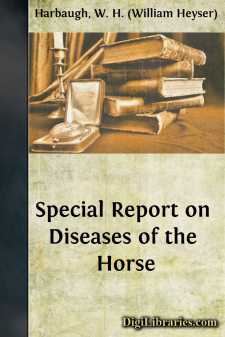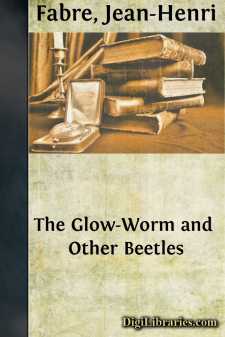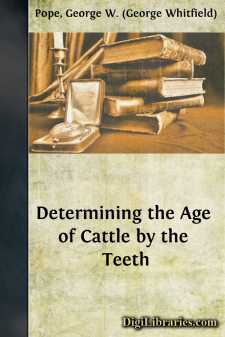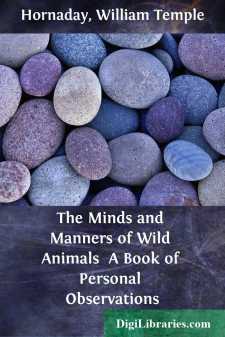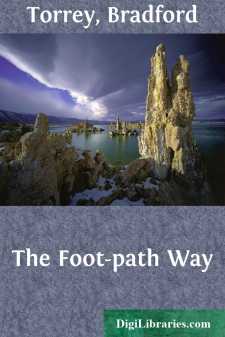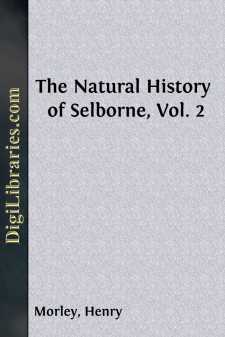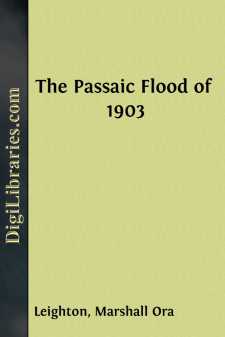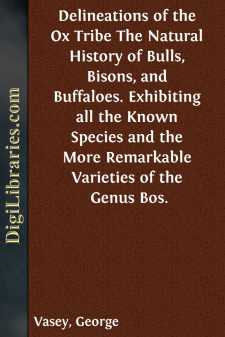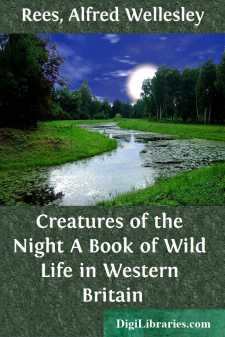Nature
Nature Books
Sort by:
In the examination of a sick horse it is important to have a method or system. If a definite plan of examination is followed one may feel reasonably sure, when the examination is finished, that no important point has been overlooked and that the examiner is in a position to arrive at an opinion that is as accurate as is possible for him. Of course, an experienced eye can see, and a trained hand can...
more...
by:
Jean-Henri Fabre
CHAPTER ITHE GLOW-WORM Few insects in our climes vie in popular fame with the Glow-worm, that curious little animal which, to celebrate the little joys of life, kindles a beacon at its tail-end. Who does not know it, at least by name? Who has not seen it roam amid the grass, like a spark fallen from the moon at its full? The Greeks of old called it [Greek: lampouris], meaning, the bright-tailed....
more...
by:
Ithamar Howell
Page 3 INTRODUCTION OFFICE OF THEBUREAU OF STATISTICS, AGRICULTURE AND IMMIGRATION,OLYMPIA, WASHINGTON, JUNE 1, 1909. This publication represents an effort to place before the general public, and particularly the visitors at the Alaska-Yukon-Pacific Exposition, a brief description of the principal resources and industries of the State of Washington. Its imperfections may be accounted for largely by...
more...
DETERMINING THE AGE OF CATTLE BY THE TEETH. The age of cattle can be approximated closely by the appearance, development, and subsequent wear of their second incisor teeth. Cattle have eight incisor teeth, all in the lower jaw. In the calf at birth two or more of the temporary or first incisor teeth are present. With the first month the entire eight incisors have appeared.Fig.1.—Internal face of...
more...
PREFACE During these days of ceaseless conflict, anxiety and unrest among men, when at times it begins to look as if "the Caucasian" really is "played out," perhaps the English-reading world will turn with a sigh of relief to the contemplation of wild animals. At all events, the author has found this diversion in his favorite field mentally agreeable and refreshing. In comparison with...
more...
by:
Bradford Torrey
We were neither "rapid" nor "gay," and it was still only the first week of June; if we were summer boarders, therefore, we must be of some unusual early-blooming variety. First came a lady, in excellent repute among the savants of Europe and America as an entomologist, but better known to the general public as a writer of stories. With her, as companion and assistant, was a doctor of...
more...
by:
Henry Morley
INTRODUCTION. Gilbert White’s home in the quiet Hampshire village of Selborne is an old family house that has grown by additions, and has roofs of nature’s colouring, and creeping plants on walls that have not been driven by scarcity of ground to mount into the air. The house is larger, by a wing, now than when White lived in it. A little wooded park, that belongs to it, extends to a steep...
more...
INTRODUCTION. In the following pages is given a brief history of the disastrous flood which occurred in the Passaic River Basin in October, 1903. In the report by George Buell Hollister and the writer, entitled "The Passaic Flood of 1902," and published by the United States Geological Survey as Water-Supply and Irrigation Paper No. 88, are discussed the principal physiographic features of the...
more...
by:
George Vasey
PREFACE. The primary object of the present work, is to give as correct and comprehensive a view of the animals composing the Ox Tribe, as the present state of our knowledge will admit, accompanied by authentic figures of all the known species and the more remarkable varieties. Although this genus (comprising all those Ruminants called Buffaloes, Bisons, and Oxen generally,) is as distinct and well...
more...
THE HOLT AMONG THE ALDERS. I first saw Lutra, the otter-cub, while I was fishing late one summer night. Slow-moving clouds, breaking into fantastic shapes and spreading out great, threatening arms into the dark, ascended from the horizon and sailed northward under the moon and stars. Ever and anon, low down in the sky, Venus, like a clear-cut diamond suspended from one of its many twinkling points,...
more...


